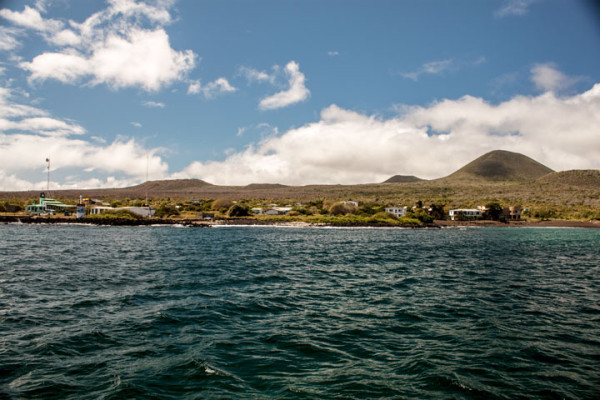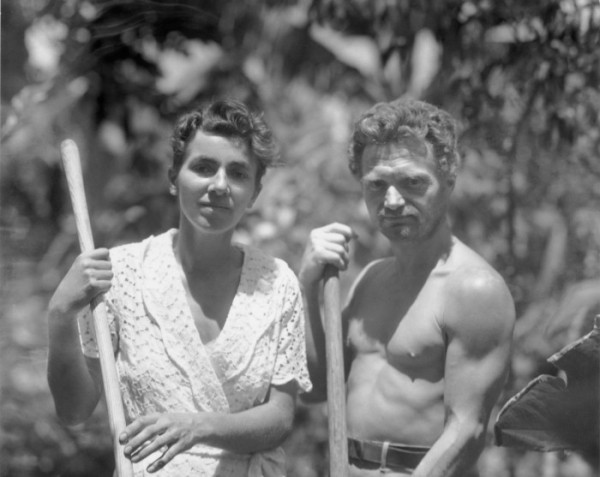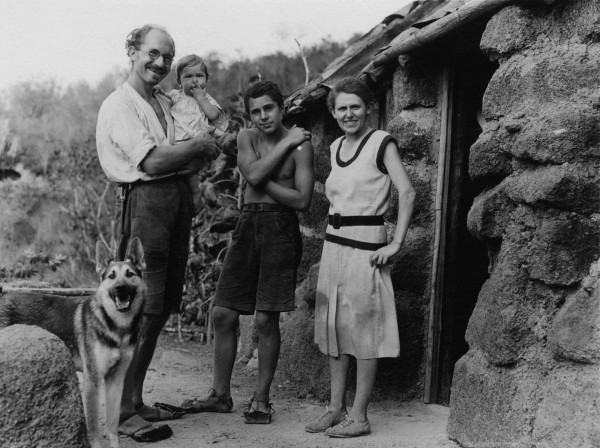Hasn’t nearly everyone, at one time or other, been seized by a fleeting desire to flee civilization and find peace and contentment on an uninhabited tropical island?
Friedrich Ritter and Dore Strauch, residents of Berlin, were two such dreamers. In July 1929, they set sail from Amsterdam, bound for the Galapagos Islands, which the British scientist Charles Darwin had explored in the 19th century. In September of that year, they finally set foot on Floreana, a somewhat bleak island of 173 square kilometres where not a single soul lived. Who can blame them? The Islands are beautiful and tranquil and to this day, thousands of tourists flock to the islands to see its beauty, whether it be on a Galapagos cruise on board the Legend or staying on land.

How they fared on Floreana, which is 926 kilometres from the coast of Ecuador and quite far from the nearest island in the Galapagos archipelago, is the subject of a fascinating two-hour documentary, The Galapagos Affair: Satan Came to Eden, which opens at the Bloor Hot Docs Cinema on Friday, April 11.
Directed by Dayna Goldfine and Dan Geller, it’s a story of idealism, courage, misanthropy, romance and, perhaps, murder.
Ritter, a physician influenced by the ideas of the German philosopher Friedrich Nietzsche, yearned to live a simple and unadorned life stripped of material possessions. Strauch, his patient, was of the same mind. They divorced their respective spouses, cast off their wordly possessions and went to South America to realize their utopian dream.

Goldfine and Geller relate their unusual and intriguing odyssey through letters, grainy home movies, excerpts from a book authored by Strauch and interviews with Europeans who live on the Galapagos chain of islands. They use actors, such as Cate Blanchett and Thomas Kretschmann, to speak on behalf of the protagonists.
When Ritter and Strauch left Holland on their four-week voyage to Ecuador, they were ecstatic. “At last, we were on the way to the Promised Land,” she said, anticipating the life that awaited them on Floreana, which is dominated by an extinct volcano and named after Ecuador’s first president, Juan Flores.
Dropped off on the solitary island, Strauch could not contain herself. As she put it, “We were alone at last.”
The lovers cleared land, planted a garden and built a rudimentary dwelling. But after a year a half of living in solitude, their relationship soured, with Strauch claiming that Ritter did not treat her lovingly or kindly.

After German newspapers published far-fetched accounts of their Adam-and-Eve existence, another German couple joined them on Floreana. Heinz Wittmer and his wife, Margret, who was pregnant with her second child, were decent people who expected to be welcomed by their fellow Germans. Instead, Ritter was resentful of their presence. He wanted the island to himself.
Yet three more intruders, Eloise von Wagner and two male friends, arrived shortly afterward. A liberated woman long before the age of feminism, she hoped to build a Florida-style resort on Floreana, an idea that did not sit well with either Ritter or Strauch.

In 1934, a severe drought and an intense heat wave brought misery to the island, but these natural calamities paled in comparison to the events that would transpire. Rolf Blomberg, a Swedish journalist, recorded them for posterity.
The Galapagos Affair can be seen as a cautionary tale about human strengths and weaknesses and about the notion that paradise is a condition rather than a place. As one man wisely says, “Wherever you go, you bring yourself.”
